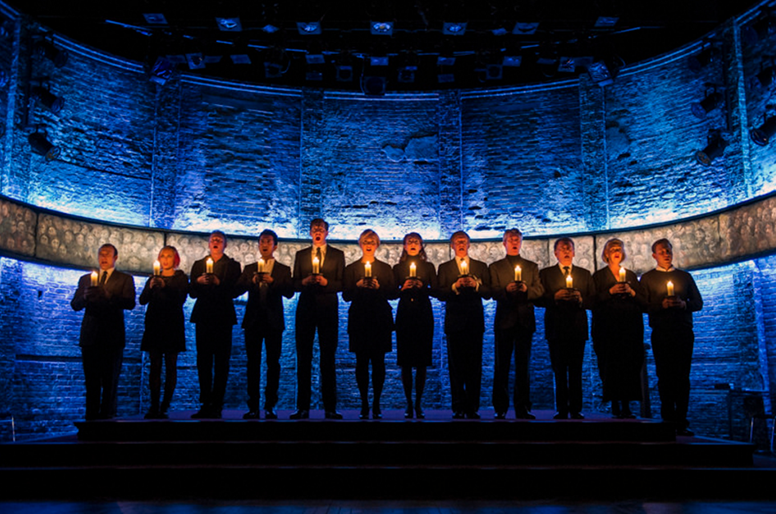England, the near future: the Queen is dead. Prince Charles, after a lifetime of waiting, prepares for his coronation. But can he uphold the stability his mother has represented for nearly 70 years?
Mike Bartlett’s fascinating new play, King Charles III, presents an imagined view of an imminent scenario, and with it questions the nature of monarchy, democracy and Great Britain itself.
Robert Powell ascends to the role of the future king, adopting subtle mannerisms – nuances in the voice, that shake of the wrist – to depict Charles without venturing into caricature (A Spitting Image mask does appear in the anarchic second act). More imagination, though, is required to picture him as Charles than Ben Wighton as our own apologetically stooping Duke of Cambridge and Jennifer Bryden as a statuesque, quietly calculating Kate.
Harry, meanwhile, gets a laugh; though his role as ‘a ginger joke’ feels a little clichéd: the clown in court whose head is turned by a pretty Nationalist who introduces him to the delights of Wetherspoons and kebab shops.
After a grave, candlelight procession to mark the passing of the Queen, Charles is presented with his first bill – a restriction of the freedom of the press. Where Elizabeth applied her signature to every bill put before her as a matter of formality since Churchill, Charles lets his personal views rule and refuses to sign. It’s a significant act of defiance, and sets off a chain of events which threaten to extinguish the monarchy forever.
Through Bartlett’s excellent writing we’re given a gripping glimpse of a future which looks unnervingly familiar. Watching the play unfold is like being treated to two and a half hours of time travel. Yet cleverly, while sending us fleetingly into the future, it also grounds us in the past, within those English traditions which begin to look so precarious.
Written in blank verse, King Charles III is like watching a Shakespearean history play, with Charles displaying glimpses of Lear (the old king usurped) and Richard II (as he takes up the hollow crown to hand to another). His musings – ‘Better thoughtful prince than king?’ – would do Hamlet proud, meanwhile Kate spurs William into action, not unlike Lady Macbeth. There’s even a ghost.
Of all the real-life characters, Bartlett’s speculation of Kate’s true nature holds the most fascination for me. Not just bringing a ‘sense of fashion and good hair’ to the family, she uses her silent, ‘plastic’ image to plan and watch, before making her game-changing move to ensure the future of her children. It’s Game of Thrones, in stilettos.
A family drama of the highest stakes, yet with enough clever humour to avoid taking itself too seriously, King Charles III carries a unique frisson of familiarity that makes it a royal must-see, wherever your allegiances lie.
King Charles III, Cambridge Arts Theatre, until Saturday 24 October. 7.45pm. Tickets from £20

